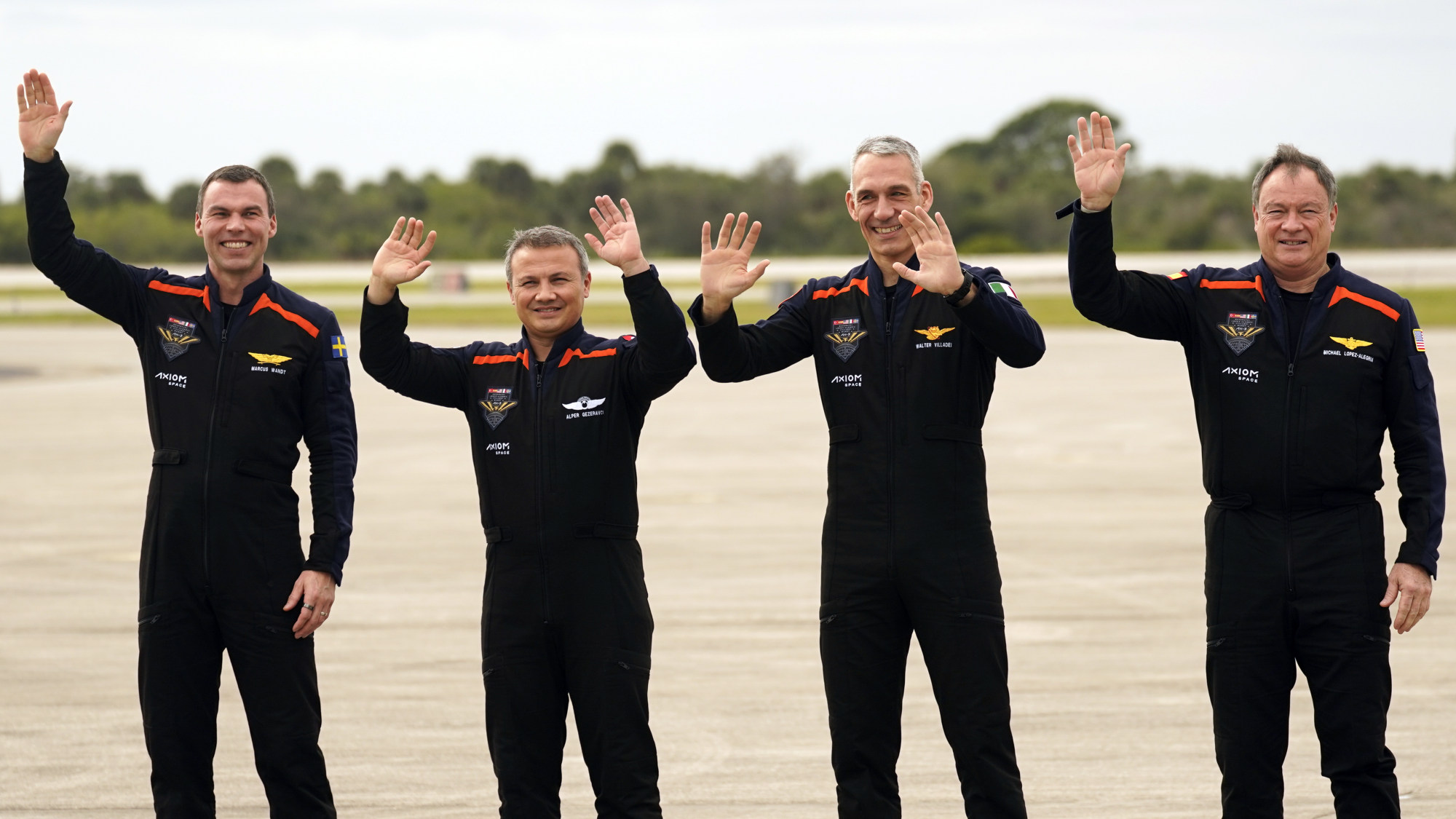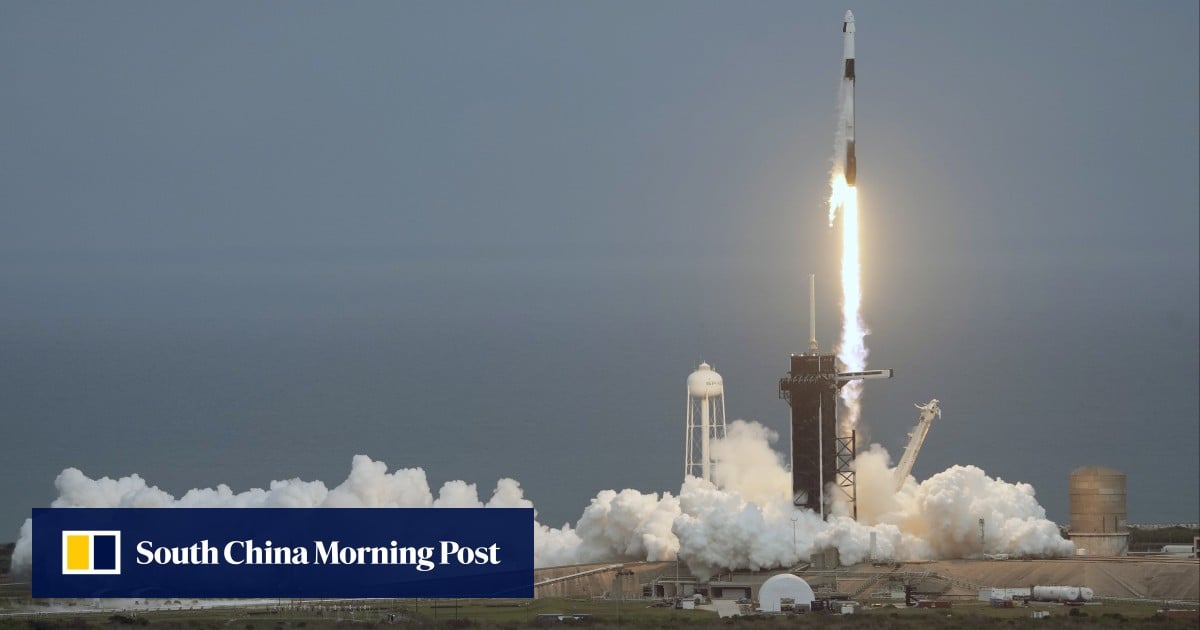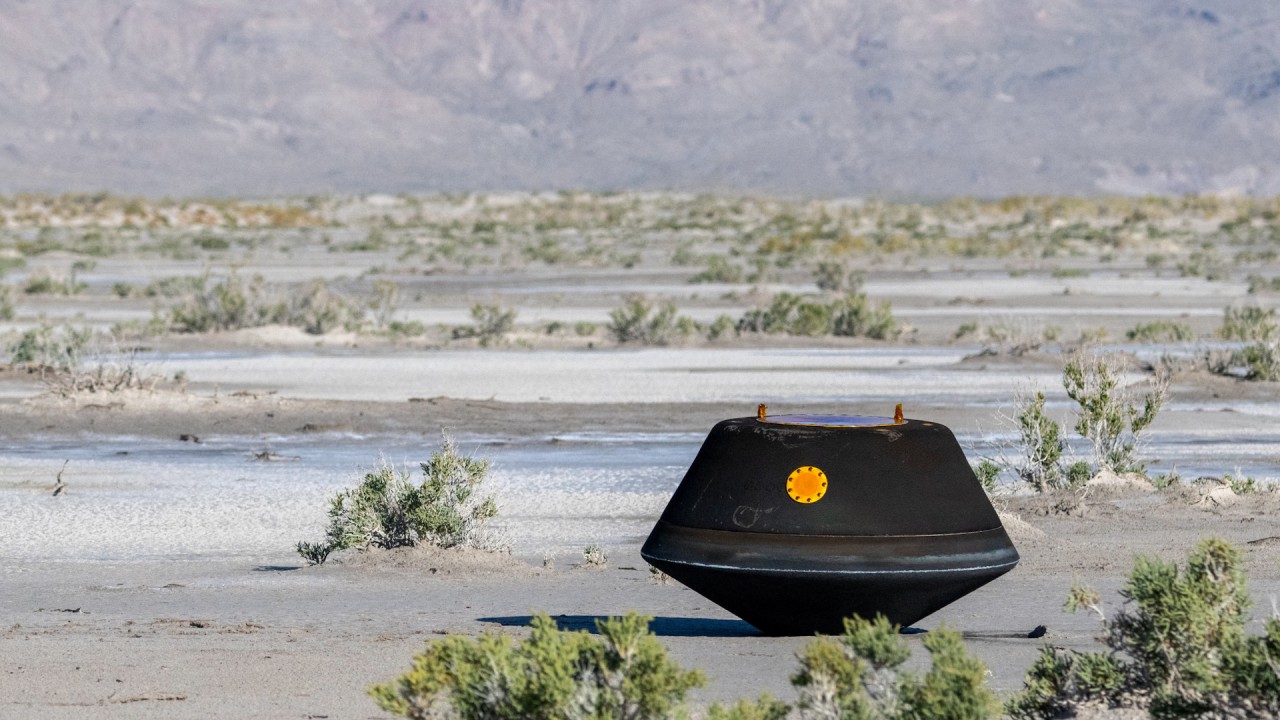Live video streamed online by Axiom showed the two-stage 25-storey-tall launch vehicle streaking into partly cloudy skies over Florida’s Atlantic coast atop a fiery, yellowish tail of exhaust.
Cameras inside the crew compartment beamed footage of the four men strapped into their pressurised cabin, seated calmly in helmeted white-and-black flight suits as the rocket soared toward space.
Nine minutes after launch, the rocket’s upper stage delivered the crew capsule to its preliminary orbit, according to launch commentators.
Meanwhile, the rocket’s reusable lower stage, having detached from the rest of the spacecraft, flew itself back to Earth and safely touched down on a landing zone near the launch site.
First all-private astronaut team welcomed aboard ISS
First all-private astronaut team welcomed aboard ISS
The mission was the third such flight organised by Houston-based Axiom over the past two years as the company builds on its business of putting astronauts sponsored by foreign governments and private enterprise into Earth orbit.
The company charges its customers at least US$55 million for each astronaut seat.
Plans for the Axiom-3 mission call for the crew to spend roughly 14 days in microgravity aboard the ISS conducting more than 30 scientific experiments, many of them focused on the effects of space flight on human health and disease.
More symbolically, the mission reflects the growing number of nations venturing to Earth orbit as a way of enhancing global prestige, military prowess and satellite-based communications.

Axiom billed the flight as “the first all-European commercial astronaut mission” to the space station.
Nasa, besides furnishing the launch site at Cape Canaveral, assumes responsibility for the astronauts once they rendezvous with the space station.
Axiom, an eight-year-old venture headed by Nasa’s former ISS programme manager, is one of a handful of companies building a commercial space station of its own intended to eventually replace the ISS, which Nasa expects to retire around 2030.


